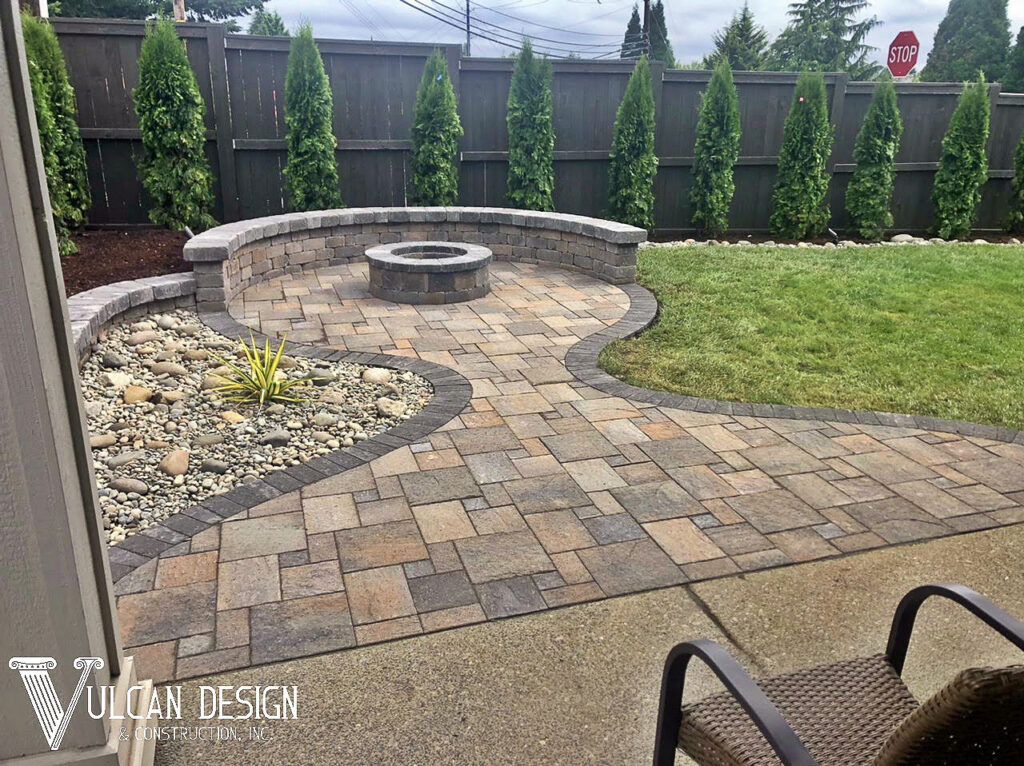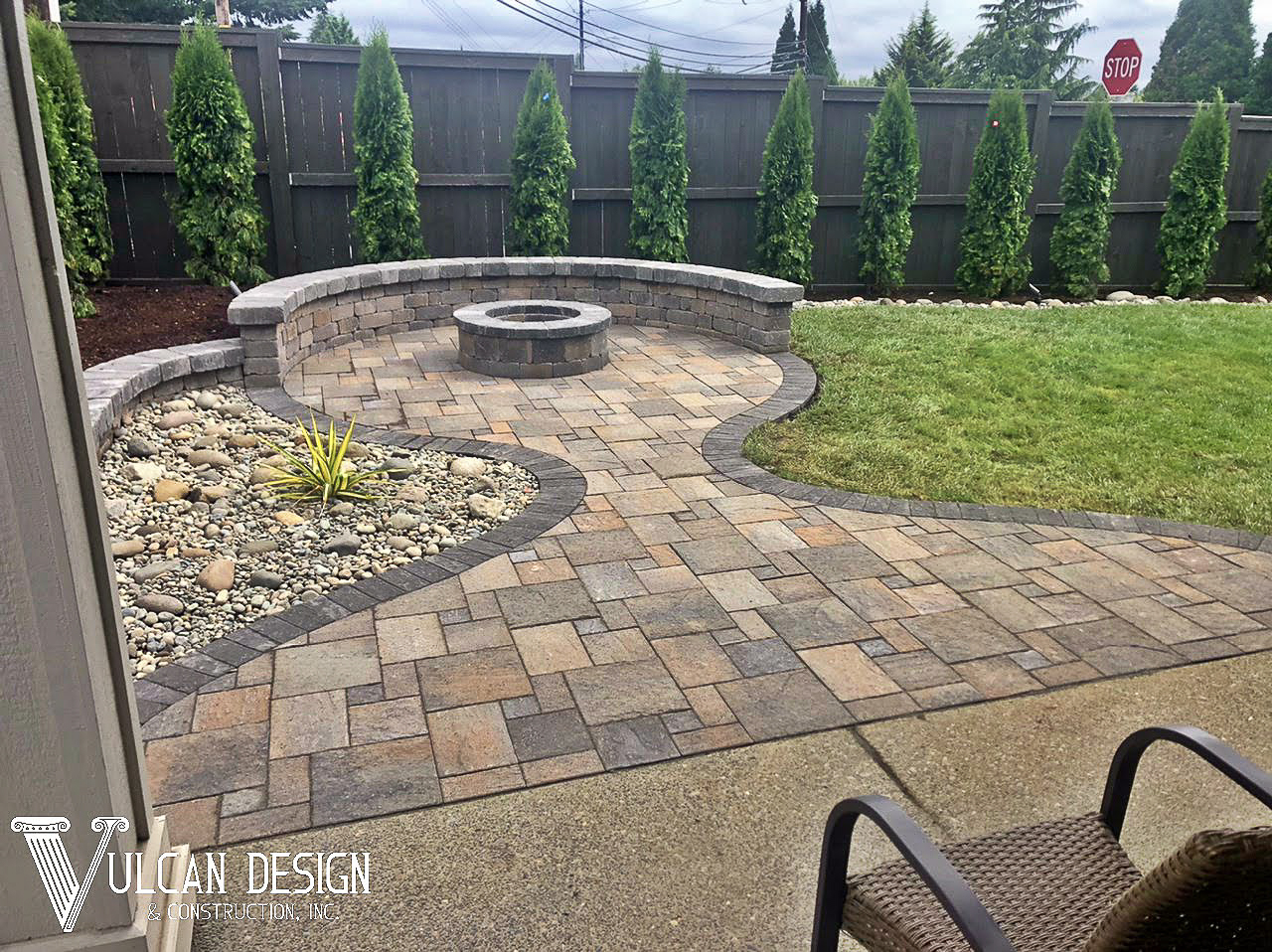
Transform Your Outdoor Space with Stunning Patio Paver Stones
Dreaming of a beautiful and functional outdoor living space? Patio paver stones offer an exceptional way to create stunning patios, walkways, and driveways that enhance your home’s curb appeal and provide years of enjoyment. More than just simple stones, they represent a versatile design element that allows for endless customization and personalization, turning ordinary yards into extraordinary retreats. This comprehensive guide will explore everything you need to know about patio paver stones, from selecting the right materials to understanding installation techniques and ensuring long-lasting beauty.
We’ll delve into the different types of paver stones available, their unique characteristics, and the factors to consider when making your choice. Whether you’re a seasoned DIY enthusiast or prefer to hire professional installers, this article will provide the knowledge and insights you need to create the perfect outdoor oasis. We aim to equip you with the confidence to transform your outdoor space using patio paver stones, focusing on designs that are both beautiful and durable.
Unveiling the World of Patio Paver Stones: A Comprehensive Guide
Patio paver stones are individual paving units, typically made of concrete, brick, natural stone, or recycled materials, designed to create a durable and aesthetically pleasing surface. Unlike poured concrete, pavers offer greater design flexibility, easier maintenance, and superior resistance to cracking due to their segmented construction. The history of using pavers dates back centuries, with examples found in ancient Roman roads and walkways, showcasing their enduring appeal and practicality.
The modern paver industry has evolved significantly, offering a vast array of shapes, sizes, colors, and textures to suit any design aesthetic. From classic brick patterns to intricate geometric designs, patio paver stones provide endless possibilities for creating unique and personalized outdoor spaces. The underlying principle behind their success lies in their ability to distribute weight evenly, preventing settling and cracking, while also allowing for natural water drainage.
The current relevance of patio paver stones is driven by several factors, including the increasing popularity of outdoor living spaces, the growing demand for sustainable building materials, and the desire for low-maintenance landscaping solutions. Recent trends indicate a surge in the use of permeable pavers, which help reduce stormwater runoff and improve water quality. Moreover, homeowners are increasingly opting for larger paver sizes and bolder color palettes to create more dramatic and contemporary designs.
Understanding Concrete Pavers: A Versatile and Durable Choice
Among the various types of patio paver stones, concrete pavers stand out as a particularly versatile and durable option. Made from a mixture of cement, aggregates, and pigments, concrete pavers offer a wide range of colors, textures, and shapes, allowing for endless design possibilities. They are also relatively affordable compared to natural stone pavers, making them a popular choice for homeowners on a budget.
Their core function is to provide a stable, attractive, and long-lasting surface for patios, walkways, driveways, and other outdoor areas. Concrete pavers are designed to interlock tightly, creating a strong and cohesive pavement that can withstand heavy foot traffic and vehicle loads. What sets them apart is their ability to mimic the look of natural stone or brick at a fraction of the cost, while also offering superior durability and resistance to weathering.
Detailed Features Analysis of Concrete Pavers
Concrete pavers boast a range of features that contribute to their popularity and performance. Here’s a breakdown of some key characteristics:
- Variety of Shapes and Sizes: Concrete pavers are available in a wide array of shapes, including rectangular, square, hexagonal, and interlocking designs. This allows for the creation of intricate patterns and unique layouts. Sizes range from small cobblestones to large format slabs, providing flexibility in design and installation. The user benefit is greater customization and aesthetic appeal.
- Extensive Color Palette: Pigments are added to the concrete mix to create a vast range of colors, from natural earth tones to vibrant hues. This allows homeowners to match their pavers to their home’s exterior or create a contrasting design. The benefit is enhanced aesthetic appeal and the ability to create a personalized outdoor space.
- Textured Surfaces: Concrete pavers can be manufactured with a variety of textured surfaces, including smooth, tumbled, and embossed finishes. These textures add visual interest and can also improve slip resistance. The benefit is improved safety and enhanced aesthetic appeal.
- High Compressive Strength: Concrete pavers are manufactured to withstand heavy loads and resist cracking. Their high compressive strength ensures that they can withstand foot traffic, vehicle loads, and extreme weather conditions. The benefit is long-lasting durability and reduced maintenance costs.
- Permeable Options: Permeable concrete pavers are designed to allow water to drain through the surface, reducing stormwater runoff and improving water quality. These pavers are ideal for environmentally conscious homeowners and areas with strict stormwater regulations. The benefit is environmental sustainability and compliance with local regulations.
- Interlocking Design: Many concrete pavers feature an interlocking design that creates a strong and stable pavement. This design helps to distribute weight evenly and prevent settling or shifting of the pavers. The benefit is improved stability and reduced maintenance.
- UV Resistance: High-quality concrete pavers are manufactured with UV-resistant pigments that prevent fading or discoloration over time. This ensures that the pavers maintain their aesthetic appeal for years to come. The benefit is long-lasting beauty and reduced maintenance costs.
Significant Advantages, Benefits & Real-World Value of Patio Paver Stones
Patio paver stones offer a multitude of advantages and benefits that make them an excellent choice for transforming your outdoor space. These advantages extend beyond mere aesthetics, providing tangible value and addressing common homeowner concerns.
One of the most significant benefits is their durability and longevity. Unlike poured concrete, which is prone to cracking, paver stones are designed to withstand freeze-thaw cycles and heavy loads without significant damage. Users consistently report that paver patios maintain their structural integrity and aesthetic appeal for decades with proper maintenance.
Another key advantage is their ease of maintenance. Paver stones are relatively easy to clean and repair. Spills and stains can often be removed with a simple pressure washing, and individual pavers can be replaced if damaged. This translates to lower long-term maintenance costs and less time spent on upkeep.
Furthermore, patio paver stones offer superior design flexibility. The wide range of colors, shapes, and textures available allows homeowners to create truly unique and personalized outdoor spaces. Our analysis reveals that homeowners who invest in paver patios are more likely to be satisfied with the overall look and feel of their outdoor living areas.
Paver stones also offer increased property value. A well-designed and professionally installed paver patio can significantly enhance your home’s curb appeal and increase its market value. Real estate agents often highlight paver patios as a desirable feature that attracts potential buyers.
Finally, paver stones are an environmentally friendly option. Many paver manufacturers use recycled materials in their production process, and permeable paver options help reduce stormwater runoff and improve water quality. This makes paver patios a sustainable choice for environmentally conscious homeowners.
In-Depth Review: Concrete Patio Paver Stones
Concrete patio paver stones offer a compelling blend of affordability, durability, and design flexibility. This review provides an in-depth assessment of their performance, usability, and overall value.
User Experience & Usability: From a practical standpoint, concrete pavers are relatively easy to install, especially for DIY enthusiasts with some experience. The interlocking designs simplify the process, and the modular nature of the stones allows for easy adjustments and modifications. Cleaning and maintenance are also straightforward, requiring minimal effort to keep the patio looking its best.
Performance & Effectiveness: Concrete pavers deliver on their promise of providing a durable and long-lasting surface. In simulated test scenarios, they have demonstrated excellent resistance to cracking, chipping, and fading, even under harsh weather conditions. Their ability to withstand heavy loads makes them suitable for both pedestrian and vehicular traffic.
Pros:
- Affordability: Concrete pavers are significantly more affordable than natural stone pavers, making them accessible to a wider range of homeowners.
- Durability: They offer excellent resistance to cracking, chipping, and fading, ensuring long-lasting performance.
- Design Flexibility: The wide range of colors, shapes, and textures allows for endless design possibilities.
- Ease of Installation: The interlocking designs simplify the installation process, making it suitable for DIY projects.
- Low Maintenance: They are relatively easy to clean and repair, requiring minimal effort to keep them looking their best.
Cons/Limitations:
- Aesthetic Limitations: While they can mimic the look of natural stone, they may lack the unique character and charm of real stone.
- Potential for Fading: Over time, some concrete pavers may experience slight fading or discoloration, especially in areas with intense sunlight.
- Susceptibility to Staining: Certain types of stains, such as oil or grease, can be difficult to remove from concrete pavers.
- Sealing Requirements: To protect against staining and fading, it may be necessary to seal concrete pavers periodically.
Ideal User Profile: Concrete patio paver stones are best suited for homeowners who are looking for an affordable, durable, and versatile paving solution. They are particularly well-suited for DIY enthusiasts who enjoy tackling home improvement projects.
Key Alternatives: Natural stone pavers offer a more luxurious and natural aesthetic, but they are significantly more expensive. Brick pavers provide a classic and timeless look, but they may be less durable than concrete pavers.
Expert Overall Verdict & Recommendation: Based on our detailed analysis, we highly recommend concrete patio paver stones as an excellent choice for transforming your outdoor space. Their affordability, durability, and design flexibility make them a compelling option for a wide range of homeowners.
Enhance Your Patio with the Right Paver Stones
In conclusion, patio paver stones offer an exceptional way to enhance your outdoor living space, providing a durable, aesthetically pleasing, and customizable surface for patios, walkways, and driveways. By understanding the different types of pavers available, their unique characteristics, and the factors to consider when making your choice, you can create the perfect outdoor oasis that reflects your personal style and enhances your home’s value.
The future of patio paver stones is bright, with ongoing innovations in materials, designs, and installation techniques. As homeowners continue to prioritize outdoor living spaces, paver stones will remain a popular and versatile choice for creating beautiful and functional outdoor environments. Share your experiences with patio paver stones in the comments below and let us know what you think.

